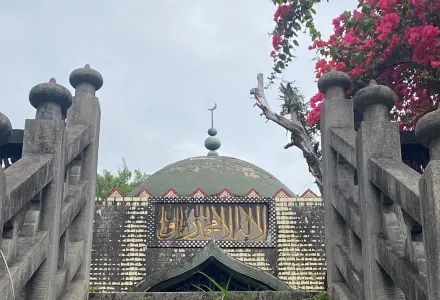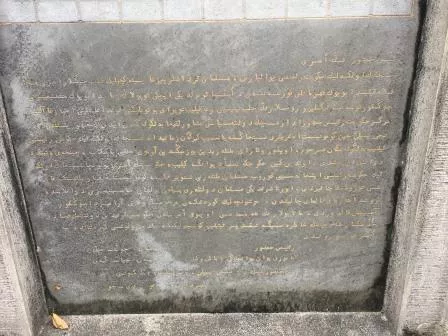
How did Uyghur chieftain Yolbars Khan come to be buried in a Chinese Nationalist grave in Taipei? The answer reveals much about China's violent relationship with its most western province.

Taipei's largest Muslim cemetery is in a residential neighbourhood not far from the central business district and the Taipei 101 skyscraper. Most of the headstones, with their golden Arabic script alongside Chinese characters, are well maintained, but just off the main road a set of overgrown stairs leads up to a crumbling mausoleum that seems to receive little attention from caretakers (or visitors). At the top of the stairs is a small family tomb which eschews the hybrid Chinese-Islamic architecture of the neighbouring plots in favour of a distinctly Central Asian design: bricks, tiles, minaret towers and a crescent-topped dome.
The tomb belongs to Yolbars Khan, a Uyghur chieftain who came to play an unlikely role supporting the Nationalists during China's civil war. The epitaph next to it — engraved in both Chinese and Uyghur — was composed by Generalissimo Chiang Kai-shek, the former leader of the Republic of China who spent his final 25 years as a dictator in Taiwan. Chiang's epitaph memorialises, in glowing terms, Yolbars Khan's role 'defending the frontier' and mourns his sudden passing on 27 July 1971.
Yolbars was a close ally of Chiang across four decades and a crucial, though largely forgotten, figure in the modern history of Xinjiang. Not only did he participate in the region's uprisings and warlord skirmishes of the 1930s, in 1950 he led a force of 100,000 Uyghurs and Kazakhs against the communist People's Liberation Army in northwest China, even after Chiang had fled to Taiwan and Mao Zedong had established the People's Republic of China....
Klass, Anatol. "An Uyghur Chieftain in China's Civil War." History Today, vol. 74. no. 1. January 2024, 66–77.
The full text of this publication is available via History Today.





